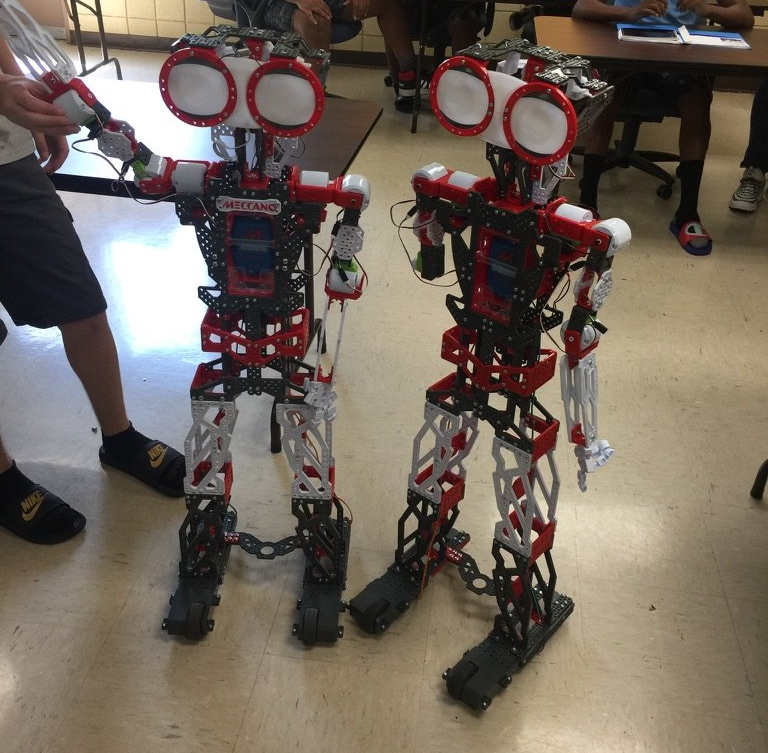One hour C+ Crash Course
One hour C++ Crash Course
Outline
A lot of Robotics applications are written in C++. Here is a refresher
1. Overview of Modern C++ Features (15 minutes)
- C++11 to C++20 (and beyond): Highlight the most impactful features introduced in each standard, such as auto, lambda expressions, smart pointers, constexpr, range-based for loops, thread support library, and more.
- Best Practices for Modern C++: Discuss how modern C++ practices have evolved, emphasizing readability, performance, and safer code.
2. Advanced Object-Oriented Programming and Design Patterns (10 minutes)
- Advanced Use of Inheritance and Polymorphism: Best practices for designing class hierarchies, interface segregation, and when to use composition over inheritance.
- Design Patterns in C++: Quick overview of commonly used patterns in C++ projects (Singleton, Factory, Observer, and Strategy patterns) and their modern implementations.
3. Modern Memory Management (10 minutes)
- Smart Pointers: Unique_ptr, shared_ptr, weak_ptr, and best practices for resource management.
- Move Semantics: Understanding std::move, rvalue references, and how to leverage them for optimizing resource management and container classes.
4. Concurrent and Parallel Programming (10 minutes)
- Thread Management: Creating and managing threads, thread safety, mutexes, locks, and condition variables.
- Parallel Algorithms: Introduction to the parallel algorithms in the Standard Template Library (STL) and how to use them to improve performance.
5. Modern C++ Idioms and Techniques (10 minutes)
- Rule of Three/Five/Zero: Resource management idioms for modern C++.
- Template Metaprogramming: A brief on compile-time computations and type manipulations.
- constexpr and inline variables: Understanding their importance and usage.
6. Latest Trends and Tools (5 minutes)
- Overview of the Latest C++ Standards (C++23 and upcoming): Quick overview of the latest features and what’s on the horizon for C++.
- Tooling: Briefly introduce tools for code formatting (clang-format), static analysis (Cppcheck, Clang-Tidy), and modern IDEs that support C++ development.
Closing (Q&A Session) (5 minutes)
- Open the floor for questions, allowing participants to discuss specific topics of interest or clarify doubts.
Aimed at the Beginner
1. Introduction to C++ and Setup (10 minutes)
- Brief History and Significance of C++: Highlight C++'s role in software development.
- Setting up the Environment: Quick guide on installing a C++ compiler and IDE or using an online compiler for practice.
- Hello World Program: Write and explain a simple program to demonstrate basic syntax and compiling.
2. Variables, Data Types, and Operators (10 minutes)
- Variables and Data Types: Introduction to basic data types (int, char, float, double) and how to declare variables.
- Basic Operators: Arithmetic, assignment, and comparison operators to manipulate data.
3. Control Structures (10 minutes)
- Conditional Statements: Use of
if,else, andswitchstatements to make decisions in code. - Loops: Introduction to
for,while, anddo-whileloops for repeating code blocks.
4. Functions (10 minutes)
- Defining and Calling Functions: How to write reusable code blocks with functions.
- Parameters and Return Types: Passing data to functions and returning a result.
5. Basic Object-Oriented Programming (10 minutes)
- Classes and Objects: Concept of classes as blueprints and objects as instances.
- Basic Class Members: Attributes and methods; how to define and access them.
- Constructors: Special functions for initializing new objects.
6. Basic Input/Output and Practice Problem (10 minutes)
- Cin and Cout for Input/Output: Demonstrating how to read from and write to the console.
- Simple Practice Problem: Apply learned concepts in a small challenge, like calculating the area of a shape, to reinforce learning.
Closing Remarks and Resources for Further Learning (5 minutes)
- Summary of key points covered.
- Encourage practice and exploration.
- Provide resources for further learning: recommended books, online tutorials, and practice websites.

